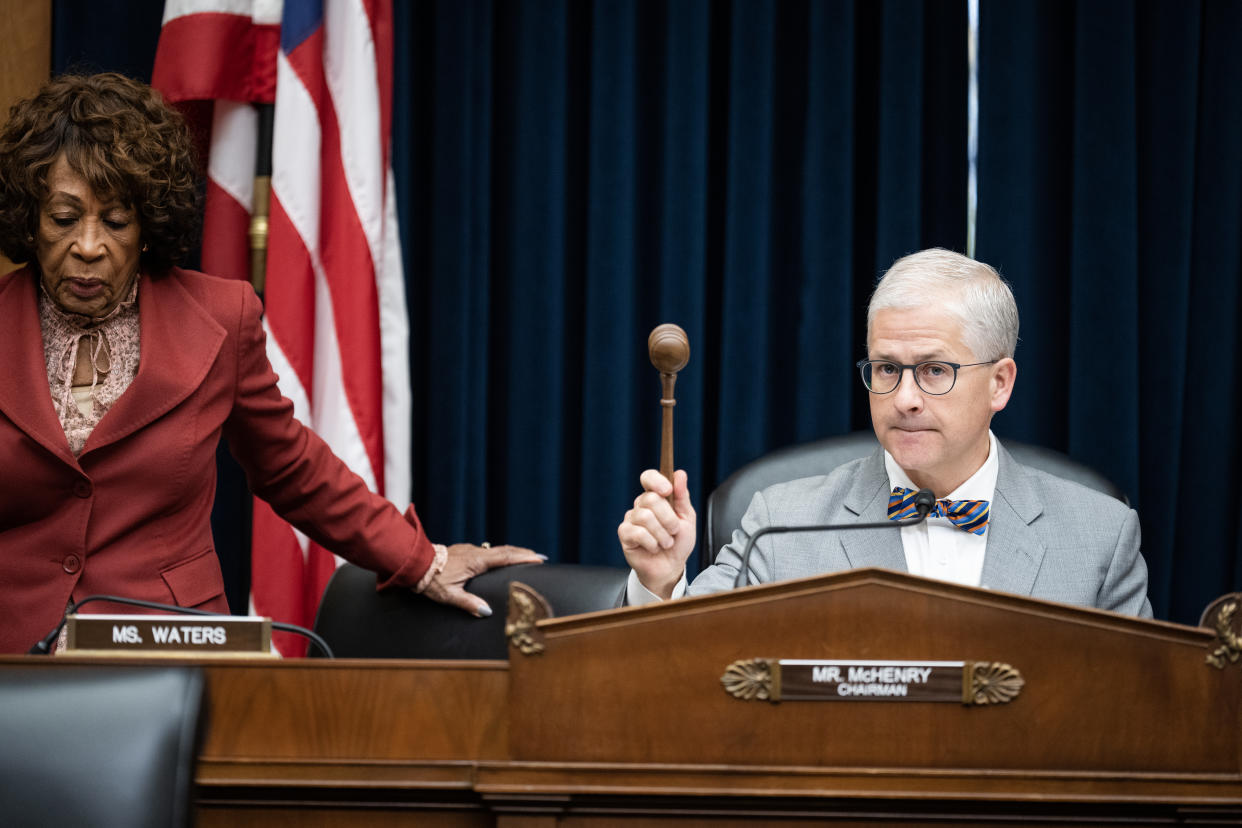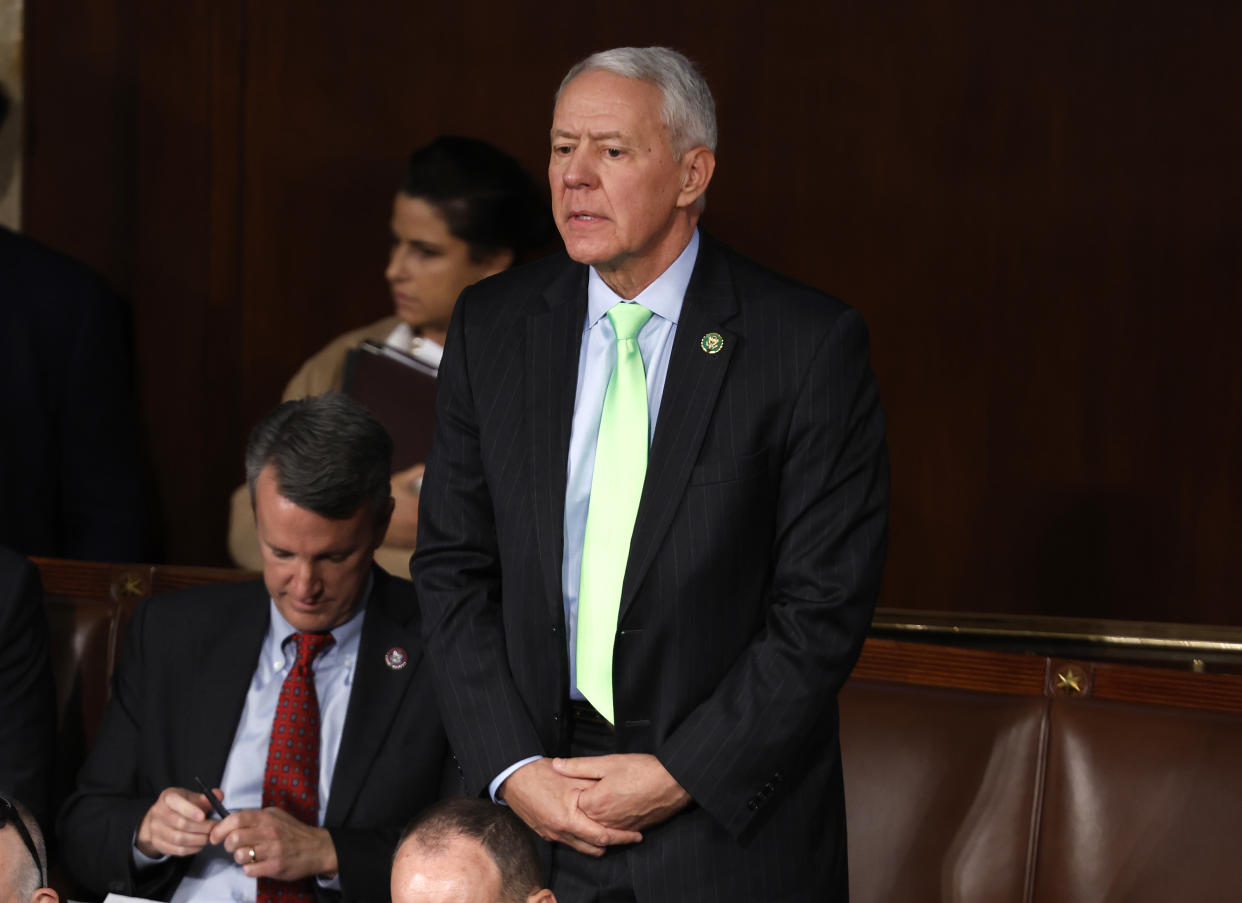How historic turnover on Capitol Hill could shape business issues in 2024 and beyond
Congress is in the midst of an epic wave of retirements with around 40 lawmakers already announcing plans to leave at the end of this term.
The shift, triggered by this year's dysfunction, is set to reshape Capitol Hill on an array of financial world issues with leading voices in areas from cryptocurrency to technology to energy to entitlements reform all hanging it up.
In just the last week, former Speaker Kevin McCarthy has announced that he’ll be leaving imminently and House Financial Services Chair Patrick McHenry announced plans to leave after 2024.
They are joining a list of figures making plans to be elsewhere as decades of expertise head out the door. These include figures like Rep. Ken Buck (R-Colo.), a prominent voice on Washington’s efforts to rein in Big Tech, and Sen. Joe Manchin (D-W.V.), who has often led the charge on energy issues.

An immediate impact
Many won't be gone until this current Congress ends at the end of 2024. But the impact is set to be felt immediately with Kevin McCarthy resigning by the end of this month.
He will be absent in January as Congress resumes spending fights after a holiday break of sorts. The Californian's short time as speaker did, to be sure, see historic levels of dysfunction, but he also helped push towards compromises that avoided both a debt default and government shutdown.
And the loss of McCarthy's vote, alongside the expulsion of George Santos (R-N.Y.), makes the Republican majority even more tenuous — just as his still largely untested successor is set to try to negotiate complex fiscal 2024 spending bills that Congress must adopt by Jan. 19 to avert a partial government shutdown.
The loss of Rep. McHenry will also be felt on issues important to the financial sector, like cryptocurrency.
McHenry has championed two ongoing cryptocurrency efforts — one bill focused on crypto’s market structure and another focused on stablecoins — as chair of the House Financial Services Committee and is hoping to finalize those bills before his current term expires.

But McHenry’s role was far broader than that. He commanded respect on an array of issues including banking regulations and financial market regulation. One Democrat, Rep. Jim Himes (D-Conn.), even told Punchbowl News that McHenry was “one of the real voices of sanity around here.”
In at least one case, a departure could spur Congress to action. Sen. Debbie Stabenow (D-Mich.) has vowed to get a five-year farm bill done next year before she heads back to Michigan. But other initiatives could be in for an uphill battle in 2024. Tobin Marcus, the head of US policy and politics at Wolfe Research, told Yahoo Finance he wouldn’t count on any surge of productivity from the scores of lawmakers who will be freed from reelection campaigns in 2024.
“The overall legislative environment will be so hostile it’s hard to see much in the way of big Congressional accomplishments even if retiring members throw political caution to the wind,” he said.
Effect likely for years to come
The losses will be felt in other areas for years.
Rep. Buck of Colorado is one example. He’s long been a leading conservative Republican voice on how Washington might thoughtfully rein in Big Tech. “I think we have to use a scalpel, and not a chainsaw,” he told Yahoo Finance in 2010. But he recently announced he won’t seek reelection after breaking with many in his party who refuse to accept the results of the 2020 presidential election.

The tech debate already lost another prominent voice earlier this year when former Rep. David Cicilline (D-R.I.) resigned from Congress to run a philanthropic group called the Rhode Island Foundation. Cicilline previously led a landmark 16-month congressional investigation into Amazon, Apple, Google, and Facebook. He also formed Congress’s bipartisan antitrust caucus and his partner in that effort was none other than Rep. Buck.
Sen. Manchin — who likely will remain in the headlines as he is "absolutely" considering a run for president — will nonetheless step down from his prominent perch in Washington’s energy debates. The chair of the Senate’s Energy and Natural Resources Committee has long been a proponent of an issue keenly important to the sector: permitting reform for both fossil fuel and clean energy projects.
“No matter what you want to build, it takes a very long time,” Manchin said this spring about his effort for a bipartisan bill that business groups say desperately needs to happen, but whose prospects are now uncertain.
The effects could also be felt on an array of other issues.
Sen. Mitt Romney (R-Utah) is a key advocate for commissions to look at the insolvency of Social Security and Medicare. He is retiring.
Sen. Ben Cardin (D-Md.) is likewise hanging it up. He is a former chair of the Senate's Committee on Small Business and helped lead the design of the key pandemic-era Paycheck Protection Program.
Rep. Abigail Spangberger (D-Va.) has been an outspoken sponsor of bills to ban lawmakers from trading stocks. She is leaving to run for governor of her state.
All this a full 11 months before election day 2024, with more retirement announcements possible in the weeks ahead.
The impact of the losses will be sorted out between now and then with some congressional watchers predicting that congress adapts. “The individual issues associated with the retiring Members of Congress are bigger than the Members themselves," said Brian Gardner, Stifel's chief Washington policy strategist.
"It always hurts to lose knowledgeable and experienced lawmakers, but someone will step in to fill the void(s)” he added.
Ben Werschkul is Washington correspondent for Yahoo Finance.
Click here for politics news related to business and money
Read the latest financial and business news from Yahoo Finance
